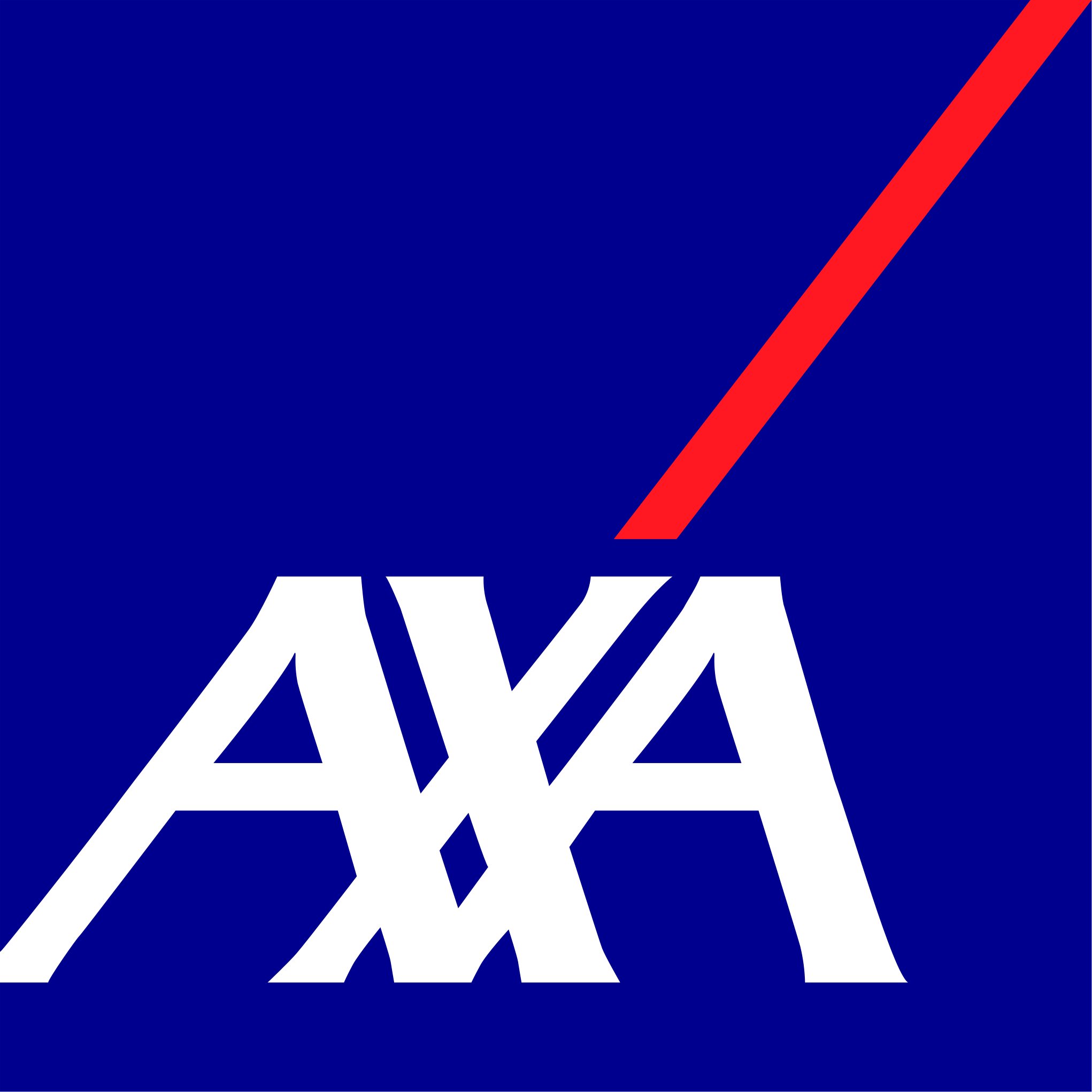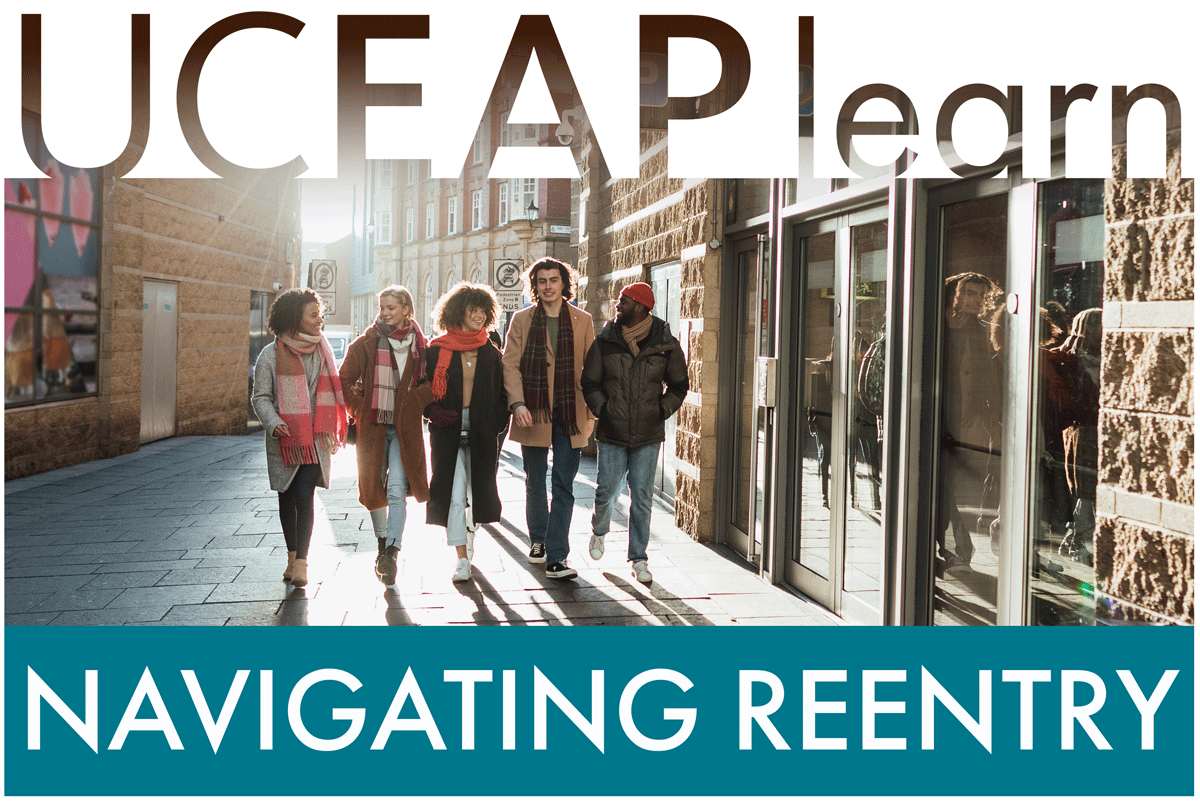Support
UCEAP students are supported by a network of people throughout the world. Your study abroad experience will be guided by trained staff who are there to support you as you prepare to study abroad, while you are abroad, and throughout the program. While on a UCEAP program, all student participants have travel insurance coverage and 24/7 emergency assistance.
Campus Study Abroad Office
At each UC campus study abroad office, advisors are available to discuss your goals for study abroad, advise on progam selection and the application process, and identify funding opportunities. Campus advisors can also provide referrals to academic departments, student health centers, disability services, financial aid, and other campus resources.
UCEAP Program Team
Once you have been nominated to participate in a program, UCEAP specialists and advisors will provide guidance and information related to your predeparture requirements such as visa/entry information, health and safety precautions, host institution requirements, course registration, housing, and arrival information.
You will receive comprehensive guides that cover the policies, procedures, and information specific to your program.
Your UCEAP program team, partner institution, or third-party provider will provide an online orientation prior to departure.
You will receive access to a predeparture checklists that cover instructions and deadlines for all tasks that need to be completed prior to departure for your program.
Disability Support for Accommodations Abroad
If you receive disability accommodations on your home campus or think you may need additional medical or health support abroad, you will need to plan and coordinate with your UC campus disability office, UCEAP, and your UCEAP program(s) of interest in the program selection process to inquire about the availability of these same accommodations abroad. UCEAP can guide you through the accommodations request process, but you need to disclose accommodations early and communicate with the UCEAP office.
Receiving disability accommodations abroad starts with a conversation between you and your UC campus disability office. Your disability specialist will consult with you about your needs and the program requirements. An important part of the consultation should be creating a plan in case your needs cannot be accommodated or can only be partially accommodated at the location abroad. They will provide a letter of accommodations that you will provide with your application to UCEAP.
After you submit your accommodations letter to your UCEAP Program Specialist and have been accepted into the program, you will receive information about how to set up your accommodations abroad. Depending on the program, you may be asked to meet with onsite staff before departure to determine whether the accommodation request can be met. You may also receive contact information for staff abroad so you can complete their procedures for requesting accommodations.
Onsite Disability Coordinators - Ghana
After you submit your disability accommodations letter to UCEAP, you will receive information on who to contact to request and arrange your accommodations. The Ghana Study Center will direct students to the relevant office or department at the host university. The onsite staff will meet with you after arrival to finalize your accommodations.
Health and Safety Team
Safety is a partnership. This experienced team oversees the process to inform you of and mitigate risks associated with your study abroad program participation.
UCEAP helps you prepare for and manage health and safety topics that you might be thinking about, or maybe haven't considered, through an interactive online course.
Program-specific information to help you plan for how to reduce health and safety risks is provided in the UCEAP portal.
The health clearance provides you with a foundation to discuss your host country and program with UC Student Health or your primary care provider. Review medications, create a treatment plan, or check in about the conditions you manage.
Finance Support
UCEAP Student Finance works in coordination with your home campus to transfer financial aid, create program budgets, and provide UCEAP financial account support.
UCEAP provides detailed program budgets to account for all your expenses abroad.
UCEAP coordinates with your home campus financial aid office to transfer financial aid to your UCEAP account and disburse excess aid to help you fund your study abroad education.
UCEAP offers a diverse and generous selection of scholarships to our students.
Insurance for Continuity of Care
If you have complex medical conditions for which you need to plan treatment, you can ask UCEAP for help. We can share information we've learned from prior participants or engage Chubb-AXA Global Travel Assistance to plan for your managing your health and wellness.
Academic Specialist
A UCEAP academic specialist is available to advise on program academic requirements and policies. The academic specialist is responsible for documenting your course registration and grades and sending this information to your campus registrar.
Global Travel Assistance

UCEAP registers you to receive travel and security alerts during your program period from Crisis24, UC's contracted security provider. Crisis24 has over 30 years of experience providing world-class threat intelligence, risk avoidance advice, innovative technology tools, and emergency response services to support your safety during the program.

One benefit of the student travel insurance provided to UCEAP participants is 24/7 access to a team of professionals if you need assistance abroad. They can refer you to vetted medical clinics or, if appropriate, set you up with a virtual appointment. They can also advise you what to do if you lose your passport, provide medical translation assistance, and connect you with the Crisis24 security response team.
Chubb-AXA Global Travel Assistance can also connect you with a mental health counselor immediately by phone through their Crisis Intervention service if you are in emotional distress. For longer-term treatment the counselor can work with the AXA referral team to find an English-speaking local therapist for ongoing treatment.
Lyra Mental Health Support
UCEAP partners with Lyra, a global mental health service provider, to offer 20 mental health counseling sessions during your program. You can connect with Lyra in person, by video, or by phone. Lyra maintains an online library of videos, articles, strategies, and meditations if you prefer a DIY approach. Once abroad, you will be able to access Lyra services through instructions in your UCEAP Portal. No paperwork or fees are required to receive counseling.
UCEAP International Health, Safety, and Crisis Management (IHSCM) Unit
This team manages the UCEAP emergency phone line, leads the crisis response team, connects you to the appropriate resources, and provides guidance on student travel insurance.
Accra, Ghana Study Center
The UCEAP Ghana Study Center is in the International House, at #3 Annie Jiagge Road across from the School of Law, at the University of Ghana-Legon campus. Walking in, you’ll see a lush and beautiful tropical garden and open courtyard on the ground floor. Climb up one flight of stairs to find the center for UCEAP as well as a modern computer lab and quiet study center. Come by anytime to study, relax, research, check out a book or film, and network with staff or other international students.
Talk to study center staff about:
- Academics, research, and internship
- Transportation to medical appointments
- Health and wellness programs
- Cultural adjustment
- Travel recommendations
- Volunteer opportunities
Study center activities may include:
- Monthly birthday celebrations with cake and ice cream
- Ad-hoc community explorations around the metro area
- Going to the beach, football games, and more
- Group travel to explore Ghanaian culture
- Community service opportunities
Navigating Reentry
UCEAP supports your re-acclimation with a free online course called Navigating Reentry. Self-paced modules guide you through activities that help you reflect on your time abroad so you can answer the question, “how was study abroad?” in an authentic and meaningful way.
The Navigating Reentry course can be accessed in UCEAP Learn with your UC campus credentials. Click on the Reentry category and you’ll be guided to the modules.

